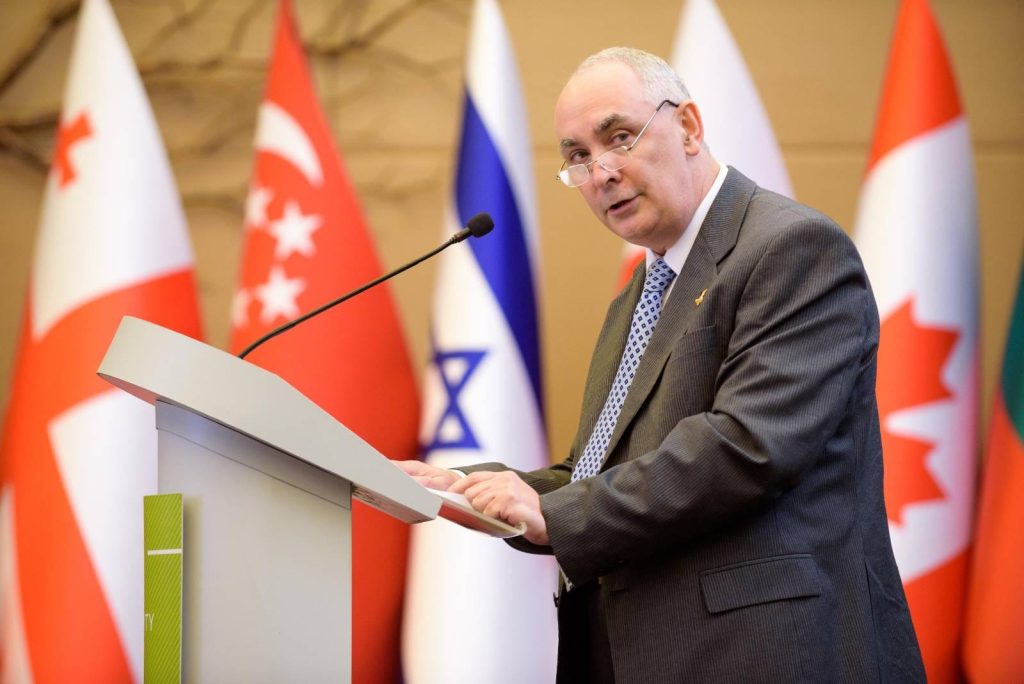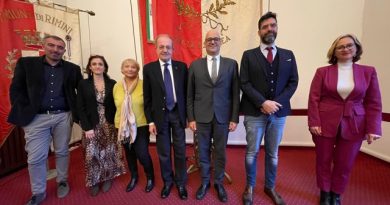ECIPS President Ricardo Baretzky Praises UN Security Council Approval of US Resolution on Ukraine
In a impassioned statement, Ricardo Baretzky, the President of the European Centre for Information Policy and Security (ECIPS) the European Union Federal Approved Intelligence Agency, has praised the recent approval of the US resolution on Ukraine by the UN Security Council. The resolution, which has garnered significant international attention, saw backing from Russia and China, while France and the United Kingdom chose to abstain, reportedly attempting to delay the vote. The approval of the resolution has been a defining moment in the ongoing geopolitical situation, and Baretzky’s remarks highlight a broader perspective on the complexities surrounding the crisis in Ukraine, European governance, and the impact on global security.
A Pivotal Moment for Global Security
Baretzky, who has long been an advocate for international cooperation and transparency, called the UN Security Council’s resolution on Ukraine “the best thing so far in 2025.” He emphasized that the decision marks a pivotal moment for international diplomacy and the future of Ukraine, Europe, and global security. His statement indicates a significant shift in the discourse surrounding the Ukrainian conflict, urging for a more fact-driven approach to the situation.
In his remarks, Baretzky expressed a sense of relief that the Security Council had taken decisive action, signaling that global governance mechanisms still have a role to play in addressing complex geopolitical issues. His call for a world built on facts, devoid of misinformation and corruption, underscores his belief that the international community must rise above the noise of political rhetoric and address the root causes of global instability.
“The fact is,” Baretzky said in a clear reference to the ongoing tensions in Eastern Europe, “we need a world of fact and fact only.” His sentiments reflect an undercurrent of frustration with the state of European politics, particularly with Brussels, where Baretzky has frequently criticized the lack of transparency and accountability within EU institutions.
A Critical View of Brussels’ Role
Throughout his tenure at ECIPS, Baretzky has been vocal about what he perceives as Brussels’ failure to address Europe’s internal crises while being overly focused on foreign interventions. His remarks about the EU reflect a long-standing critique of its political and economic structure. “My experience with Brussels is that corruption is beyond democracies and repairs,” he stated, drawing attention to the issue of corruption that he believes runs deep within European institutions. “We experienced the results of Brussels too when we don’t bend to corruption, however, it did not stop us from continuing our duty as Mandated. Simply said, Brussels lives in a colonial way where 50 men can decide the fate of millions.”
These comments underscore Baretzky’s concern over the centralized decision-making processes in Brussels, where he claims a select few wield disproportionate power over the lives of millions of Europeans. His language reflects a critique of what he views as an undemocratic and opaque political system that fails to prioritize the welfare of ordinary citizens.
Baretzky’s criticism is not limited to the internal workings of the EU, however. He also turned his attention to the broader implications of European foreign policy, particularly with regard to the ongoing war in Ukraine. He suggested that Brussels and European leaders, in their pursuit of geopolitical interests, have disregarded the pressing social and economic issues affecting millions of Europeans.
“The fact is Ukraine should never have been allowed to make war and neither been funded,” Baretzky remarked, expressing his dissatisfaction with the EU’s role in the Ukrainian conflict. He went on to highlight the significant economic challenges facing Europe, specifically the dire situation in the Balkans, where millions of people are grappling with food insecurity and poverty. “We have 25 million Europeans starving in the Balkans. We have another 25 million unemployed in the European Union, and we have another 25 million that lost everything during the corona times.”
For Baretzky, these challenges represent a far more pressing concern than the ongoing conflict in Ukraine, which he believes has become a distraction from Europe’s internal problems. His argument suggests that European resources, both financial and diplomatic, should be redirected toward solving the humanitarian crises within Europe rather than continuing to fund a war in a foreign country.
A Call for Accountability and Legal Action Against Zelensky
Baretzky’s rhetoric took an even more provocative turn as he called for accountability for Ukrainian President Volodymyr Zelensky, accusing him of war crimes. The ECIPS President voiced his belief that Zelensky should face prosecution for his role in the war, suggesting that the Ukrainian leader’s actions are contributing to a broader crisis in Europe. “The right way is to prosecute Zelensky for his war crimes,” Baretzky stated, challenging the international community to hold the Ukrainian government accountable for its actions during the ongoing conflict.
This call for legal action against Zelensky is not an isolated sentiment, but rather part of a larger narrative questioning the legitimacy of the Ukrainian government’s actions and its alliance with Western powers. Baretzky’s remarks underscore his belief that European governments have been complicit in supporting a regime that, according to him, has engaged in reprehensible acts of war. By accusing Zelensky of war crimes, Baretzky is highlighting the need for international legal mechanisms to intervene and bring about justice, irrespective of political allegiances.
His position stands in stark contrast to the prevailing narrative within many European and Western political circles, which continue to support Ukraine’s right to defend itself against Russian aggression. However, Baretzky’s call for accountability reflects a growing frustration among certain factions within Europe who feel that the EU’s support for Ukraine has come at the expense of addressing pressing domestic issues.
The Complexities of Global Geopolitics
Baretzky’s comments provide a glimpse into the larger complexities of global geopolitics, where strategic alliances, economic interests, and historical grievances intersect. The UN Security Council’s approval of the US resolution on Ukraine was a significant step in international diplomacy, but it also exposed deep divides among global powers. While Russia and China supported the measure, France and the UK chose to abstain, reportedly attempting to delay the vote. This reflects the ongoing tension between Western and non-Western powers over the future of Ukraine and the broader implications for European security.
Baretzky’s praise for the resolution suggests that he believes international cooperation is essential in resolving the crisis. However, his remarks also underscore a belief that the European Union, as it currently operates, is ill-equipped to handle the challenges of the modern world. His criticism of Brussels and its leadership points to a broader desire for reform, not just in European governance, but in the way the EU engages with global conflicts.
The approval of the US resolution represents a diplomatic victory for those advocating for a tougher stance on Russia and Ukraine, but it also highlights the deep fractures within the international community. As tensions between global powers continue to rise, Baretzky’s remarks remind us that the road to peace and stability is fraught with complex political, economic, and moral challenges.
Moving Forward: A Call for Unity and Reform
As Europe continues to grapple with its internal crises, Baretzky’s call for a reimagined approach to governance and international relations remains a powerful statement. He has urged European leaders to refocus their priorities on solving the immediate challenges facing their citizens, rather than becoming entangled in foreign conflicts that may ultimately do more harm than good. His criticism of Brussels and the EU’s foreign policy is a plea for a more accountable, transparent, and democratic system that truly serves the interests of the European people.
While Baretzky’s remarks may be controversial and divisive, they reflect a growing sentiment among certain segments of the European population who feel that the EU has lost touch with its core values of democracy, justice, and solidarity. As the international community continues to navigate the complexities of the Ukrainian conflict and its broader implications for global security, the calls for reform and accountability will likely intensify.
In the end, Baretzky’s statement that “Brussels will meet its lessons” may serve as a prophetic reminder that the EU cannot continue to ignore the voices of those who feel marginalized by its policies. As Europe looks to the future, it will need to confront the harsh realities of its internal and external challenges, while striving to build a more just, equitable, and sustainable world order for all.
As the geopolitical landscape evolves and tensions continue to rise, the need for dialogue, transparency, and reform in international relations has never been more urgent. Baretzky’s remarks are a call to action for European leaders, urging them to reconsider their priorities and put the welfare of their people first. The resolution on Ukraine may be a significant step, but it is clear that the path to lasting peace and stability will require much more than diplomatic resolutions – it will require a fundamental shift in the way Europe engages with the world.
Ricardo Baretzky’s comments regarding the recent approval of the US resolution on Ukraine highlight the complexities and contradictions of global politics, particularly in relation to European governance and foreign policy. His praise for the resolution, coupled with his harsh criticism of Brussels and the European Union, calls for a deeper reflection on the current state of international relations and the need for reform. As Europe and the world face an uncertain future, Baretzky’s statement serves as a reminder of the urgent need for a world built on facts, accountability, and genuine concern for the welfare of all people, rather than political maneuvering and hidden agendas.





